-
Analyzing how emotions ripple following terrorist events
The 2013 Boston Marathon bombing motivated mass expressions of fear, solidarity, and sympathy toward Bostonians on social media networks around the world. In a recently released study, researchers analyzed emotional reactions on Twitter in the hours and weeks following the attack. The study is the first large-scale analysis of fear and social-support reactions from geographically distant communities following a terrorist attack. The full results of the study may provide insight to governmental agencies exploring how best to handle public fear following a disruptive event.
-
-
ISIS uses control of water as a tool of war
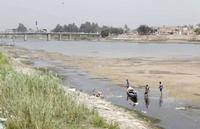
Global security analysts have warned for some time now that water scarcity due to climate change will be used as a tool of war in regions with poor governance.The on-going wars in Iraq and Syria provide the first examples of the strategic and tactical use of water as a tool of war, as militant groups operating in both countries have been using water against residents of areas they control. “ISIS has established a blueprint that can be used by other entities to take advantage of drought and water scarcity,” writes one researcher. “For all the conversation about ISIS taking control of oil refineries, one could argue that their control of water is even more significant, as it deprives the population of a resource necessary for daily sustenance and gives the militant group significant leverage over local governments and populations.”
-
-
Michigan teen-ager faces terrorism charges after posting anonymous threats
A 17-year-old Brandon High School student in Oakland County, Michigan has been arrested and accused of posting online threats using the anonymous app, After School. The Oakland County Sheriff’s office contacted the app provider and served subpoenas to identify the anonymous user who posted seventeen messages and five pictures, ranging from “Tomorrow I am going to shoot and kill every last one of you and it’s going to be bigger than Columbine,” “Death to you all,” and “Bang Bang Brandon Bang Bang,” to stock photos of a person holding a pump-action shotgun.As of Thursday evening, Apple has pulled the After School app from its App Store.
-
-
More than 5,000 killed in Jihadist violence in November
Jihadist groups killed more than 5,000 people in November, with Iraq topping the death league table, followed by Nigeria, Afghanistan, and Syria. In 664 incidents recorded in November by the BBC World Service and researched jointly with the International Center for the Study of Radicalization and Political Violence at King’s College London, the overall death toll was 5,042, or an average of 168 deaths per day. After Iraq, Nigeria, Afghanistan, and Syria, Yemen was fifth in the number of deaths, tying with Somalia, with 37 incidents each.
-
-
Report details brutal interrogation practices, lax supervision
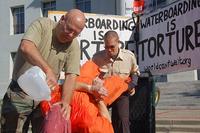
The long-awaited report on the CIA interrogation practices was release yesterday, causing a political storm. Many congressional Republicans have expressed concern over the release of the Senate report on the CIA’s use of torture on captured al-Qaeda and Islamist militants, claiming it would set off a global backlash, and threaten the security of American troops and diplomatic missions overseas.Obama administration officials agree that the release of the Senate report or its declassified executive summary is a good reason for concern about the security of U.S. facilities and military bases overseas, but they doubt it would lead to the sort of violence that killed four Americans at a diplomatic outpost in Benghazi, Libya in 2012.
-
-
Israel attacks targets in Syria to prevent advanced arms shipments to Hezbollah
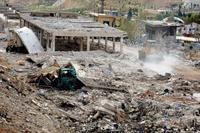
Israeli jets bombed two military targets in Syria – one near the Damascus International Airport, the other near the town of Dima, north of Damascus and near the Syria-Lebanon border – and as has been the case in previous such attacks, there was no confirmation or elaboration from Jerusalem. Syrian general command sources said that several facilities had been hit, both at the Damascus International Airport and in the area of Dimas. This is the tenth Israeli attack against military depots in Syria since January 2013. The attacks have had a specific goal: to prevent the Assad regime and Iran from transferring advanced weapon systems to Hezbollah. When Israel’s intelligence services notice that such systems are gathered for the purpose of shipping them to Hezbollah, the shipments are destroyed before they are delivered to Hezbollah.
-
-
U.S. concerns grow as ISIS establishes a base of operations in Libya
Last week the Pentagon publicly expressed its concerns about the fact the ISIS has established a base of operation in Libya. The commander of the U.S. army’s Africa Command told reporters that ISIL (ISIS) is now running training camps in the town of Derna, 450 miles east of Tripoli, where as many as 200 local fighters are receiving instruction. “ISIL has begun its efforts over in the east out there,” said General David Rodriguez. “It’s mainly about people coming for training and logistics support right now.”
-
-
Britain searches for ways to fight radicalization among Muslim youths
More than 500 Britons have traveled to Syria and Iraq to fight for extremist groups, including the Islamic State (ISIS), and roughly half of them have returned home, according to British intelligence officials. Law enforcement authorities are now concerned that those individuals may carry out attacks on British soil. From 2008 to 2009, the British government spent more than $200 million as part of its “Prevent” program to influence Muslim youths, but critics say it has not worked.
-
-
Was al-Qaeda a winner or loser from the Arab uprisings?
Al-Qaeda’s ideology can be broken down into two parts: First, al-Qaedists believe that the Islamic world is at war with a transnational Crusader-Zionist conspiracy which includes states hostile to the Islamic world. Among them are the United States and the rest of the West, Israel, Russia, and even India and China. It is this “far enemy,” and not the local despots (the “near enemy”) who do its bidding that should be the target of jihad. Al-Qaeda also opposes the division of the Islamic world into individual nation states which, they claim, is a trick perpetrated by the Crusader-Zionist conspiracy to keep the Islamic world weak and divided. What is al-Qaeda’s current state? If one looks at al-Qaeda not as an entity but as a tendency within a broader jihadi movement, it might be argued that the groups that operate as al-Qaeda affiliates, wannabes, and copycats have profited from the Arab uprisings in terms of expanding their operations and digging in, although in the process many have jettisoned many of the central tenets of the original cohort. This might be evolution, but it is just as likely to mark the deterioration or even the dissolution of the al-Qaeda wing of the jihadi movement.
-
-
Risks of terrorists attacking, or using materials from, a nuclear power plant are low: Experts

Energy analysts who support new nuclear power plants construction insist that the probability of a terrorist nuclear attack by land, sea, or air is extremely low. They reject arguments by nuclear power opponents that terrorist groups may one day attack a nuclear plant, or build an improvised nuclear bomb using materials stolen from a nuclear power plant – and that governments should, therefore, end construction of new nuclear power plants. Climate scientists supporting reduction in CO2 emissions wrote that “There is no credible path to climate stabilization that does not include a substantial role for nuclear power.”
-
-
Brainwashing and radicalization don’t explain why young people join violent causes
Why do young people from Western societies join ISIS? Terms such as “brainwashing” and “radicalization” are typically and casually invoked to explain the phenomenon. Suggestions of brainwashing or radicalization imply that the object of such efforts has been profoundly diverted from their usual, reasonable way of thinking. The instigators of this mental trickery are implicitly credited with considerable psychological skill, while the target is simultaneously assumed to have some mental insufficiency or vulnerability. The young are commonly deemed to be easy prey for those seeking to enlist them for a “radical” cause. The problem is, it’s just not that simple. Arguing that a 15 or 16-year-old is able to make a reasoned choice about engagement in hostilities risks exposing that young person to the full force of the law – but using loose, inadequate concepts such as brainwashing and radicalization to explain young people’s engagement in political violence carries its own risks. It severely limits our ability to understand why young people are mobilized in support of a group such as Islamic State, and hinders intelligent debate about the wider changes needed to prevent them doing so. Moreover our efforts to reintegrate them once they come back are likely to prove desperately inadequate.
-
-
Egypt thwarts terrorist attack on Israeli gas platforms in the Mediterranean Sea

Egypt said it had thwarted an attempt by Islamic State (ISIS)-affiliated Egyptian terrorists on 12 November to attack Israeli energy platforms in the Mediterranean Sea. The terrorists, members of the Ansar Bayt al-Maqdis terror group which operates in the Sinai Peninsula, commandeered an Egyptian navy missile boat for the planned attack. Other Egyptian navy vessels gave chase and stopped the commandeered missile boat, killing eight aboard in a heavy exchange of fire. In addition to attacking Israeli gas platform, the terrorists planned to attack Israeli ships.
-
-
Number of lone-wolf terrorist attacks in U.S. not rising, but police are targeted more often
Lone wolf terrorist attacks in the United States are not on the rise as popular culture might lead one to believe — but the attacks are changing for the worse, according to new research. The targets, weapons, and motives have changed in recent years. Before 9/11, these terrorists used bombs, but now high-velocity firearms are the weapon of choice, he said. The change might be a result of legislation enacted after the Oklahoma City bombing limiting the public’s access to bomb-making ingredients. Police and military personnel are now the preferred targets of modern lone wolf terrorists. Domestically, attacks on the power grid are the next big threat, the researchers say. Lone wolf terrorist Jason Woodring successfully downed the electric transmission system of rural Arkansas in 2013. His vandalism affected 10,000 people and cost $3 million in repairs.
-
-
ISIS says it is holding an Israeli woman pilot hostage
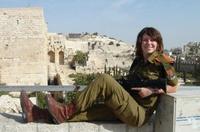
The Canadian government said yesterday (Sunday) said it was looking into reports that a Canadian-Israeli woman who joined Kurdish militias fighting in northern Syria has been captured by Islamic State (ISIS) fighters. Gill Rosenberg, 31, a former pilot who served in the Israeli Defense Force (IDF), reportedly joined Kurdish troops fighting ISIS earlier this month. Reports said she contacted Kurdish fighters through the Internet, then traveled to the Kurdish areas in Iraq to train at one of their camps on the Syrian border.
-
-
What makes a terrorist stop being a terrorist?
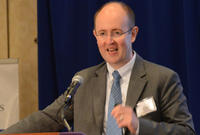
The journey into and out of terrorism is as personal as it is complex. De-radicalization programs still represent some of the most creative approaches to counter-terrorism. They can be powerful forces in thinning the ranks of lower-level members. But if we do not have a sincere discussion of why or how they work, their future will be in jeopardy. With rumors of hundreds of disillusioned ex-ISIS members exploring a potential return home, we are already way behind. We need clear thinking to underpin these programs and their evaluation. In the absence of transparency and clearer expectations, it will only take one-high profile failure (would any program survive if one of its graduates detonated a suicide bomb closer to home?) for the potential of these programs to be lost forever.
-
More headlines
The long view
How Male Grievance Fuels Radicalization and Extremist Violence
Social extremism is evolving in reach and form. While traditional racial supremacy ideologies remain, contemporary movements are now often fueled by something more personal and emotionally resonant: male grievance.
